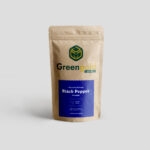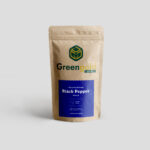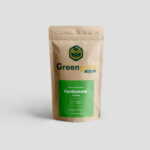Clove oil, extracted from the buds of the clove tree, is known for its antibacterial, analgesic, and anti-inflammatory properties. It’s an essential ingredient in many natural health remedies and can be used for a wide range of applications, from toothache relief to skin care and even home cleaning.
Making your own clove oil at home is easy, affordable, and ensures that you have a pure, natural product on hand for all your wellness needs. In this blog, we’ll walk you through the steps of creating your own DIY clove oil naturally, along with some tips for using it effectively.
What You’ll Need to Make Clove Oil at Home 🧴🌿
To make clove oil at home, you’ll need a few simple ingredients and tools. Here’s what you’ll need:
- Dried Clove Buds: The best source of clove oil is from the dried flower buds of the clove tree. You can find dried clove buds in most health food stores, or you can order them online.
- Carrier Oil: Choose a carrier oil to dilute the clove buds and help extract the oil. Some popular options include coconut oil, olive oil, or jojoba oil.
- A Glass Jar: A clean, airtight jar to store your homemade clove oil.
- Strainer or Cheesecloth: For straining out the clove buds once the oil is ready.
- A Double Boiler (optional): This helps to gently heat the oil and extract the clove’s essential oils more effectively.
Step-by-Step Guide to Making Clove Oil at Home 🌱✨
Step 1: Prepare the Cloves
Start by grinding the dried clove buds into a coarse powder using a mortar and pestle or coffee grinder. Grinding the cloves helps release their natural oils, making the extraction process more efficient. You can also leave the cloves whole if you prefer, but powdered cloves will give you a more concentrated oil.
Step 2: Choose and Prepare Your Carrier Oil
Next, choose your carrier oil. Coconut oil is a great option for making clove oil, as it has its own therapeutic benefits for the skin and hair, but you can also use olive oil or jojoba oil.
For every 1/4 cup of dried clove buds (or the equivalent amount if using powdered cloves), you’ll need about 1 cup of carrier oil.
If you’re using coconut oil, you might need to slightly warm it to make it liquid. For olive oil or jojoba oil, it can be used as-is.
Step 3: Combine Cloves and Carrier Oil
Place the powdered cloves or whole clove buds into the glass jar. Pour in the carrier oil, ensuring that the cloves are fully submerged. Seal the jar tightly with a lid to prevent air from getting in.
Step 4: Heat the Oil (Optional)
To help speed up the infusion process, you can use a double boiler method to gently heat the jar of oil. This helps the clove oil to infuse into the carrier oil.
- To create a double boiler, fill a small pot with water and place the jar of cloves and oil in the pot (make sure the jar is tightly sealed and the water doesn’t touch the oil). Heat the water over low heat for about 1-2 hours, stirring occasionally.
- If you don’t want to use heat, you can skip this step and simply let the jar sit in a warm, sunny spot for 1-2 weeks. The longer you let the oil sit, the stronger the infusion will be.
Step 5: Strain the Oil
After the oil has infused for the desired amount of time (whether heated or left to sit), it’s time to strain out the cloves. Use a strainer or cheesecloth to separate the oil from the solid clove buds. You can squeeze the cloth to ensure you get all the infused oil.
Step 6: Store the Clove Oil
Pour the strained clove oil into a clean glass bottle or jar with a tight-fitting lid. Store it in a cool, dark place away from sunlight to preserve its potency. Your homemade clove oil should last for several months.
How to Use Your DIY Clove Oil 🌱💧
Now that you’ve made your own clove oil, here are a few ways to use it:
- For Toothaches: Dilute a drop or two of clove oil in a carrier oil like coconut oil and apply it directly to the painful area using a cotton swab for instant relief.
- For Skin Care: Mix a few drops of clove oil with a carrier oil and use it to treat acne, minor cuts, or skin irritations. Its antibacterial and anti-inflammatory properties can help reduce swelling and prevent infection.
- For Headaches: Massage a diluted mixture of clove oil into your temples and the back of your neck to relieve headaches or migraines.
- For Muscle Pain: Add a few drops of clove oil to a carrier oil and gently massage it into sore muscles to reduce pain and inflammation.
- For Stress Relief: Add a few drops to a diffuser to fill your space with the soothing, aromatic scent of clove oil. It can help reduce anxiety and improve mood.
- As a Natural Cleaner: Use your clove oil in a homemade cleaner by mixing it with water and vinegar to disinfect countertops, sinks, and bathrooms.
Precautions and Tips ⚠️
While clove oil is natural, it’s still potent and should be used carefully:
- Always dilute clove oil with a carrier oil before applying it to the skin or gums to avoid irritation.
- Perform a patch test before using clove oil on your skin to ensure you don’t have an allergic reaction.
- Avoid direct contact with eyes and mucous membranes (like the nose and mouth).
- If you’re pregnant or have sensitive skin, consult with a healthcare professional before using clove oil.
Final Thoughts 🌿✨
Making your own clove oil at home is a simple and rewarding process that allows you to enjoy the many benefits of this powerful essential oil. From oral health to skin care and even natural cleaning, clove oil can be a valuable addition to your home remedy kit.
For the best dried cloves and other essential oils, visit Green Gold Guide and explore a range of natural products to enhance your well-being. 🌱💚


